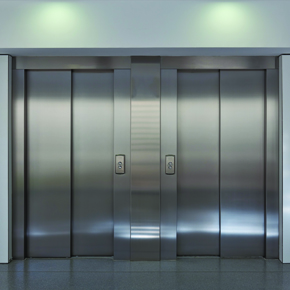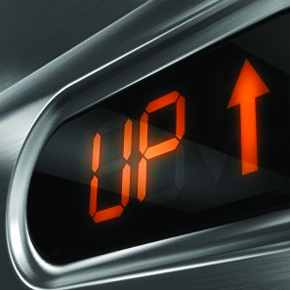
The new Lift Directive – what you need to know
The new Lift Directive 2014/33/EU (95/16/EC recast) came into force on 20 April 2016. With a delay now announced to UK regulations to implement the directive, what should specifiers and installers do next, and what are the main changes to be aware of?
Nick Mellor, director of the Lift & Escalator Industry Association (LEIA) and LIFTEX 2016 explains in May’s ABC+D Magazine…
Lift Regulations delayed
 Publication of the new Lifts Regulations, required to transpose the recast Lifts Directive 2014/33/EU into UK law, was expected by 19 April. However, the UK regulations will now be delayed until after the UK Referendum on EU membership.
Publication of the new Lifts Regulations, required to transpose the recast Lifts Directive 2014/33/EU into UK law, was expected by 19 April. However, the UK regulations will now be delayed until after the UK Referendum on EU membership.
We are advising that lift installers or manufacturers of products (lifts or safety components) should proceed from 20 April as though Directive 2014/33/EU was implemented in UK law from that point.
We believe that the Notified Bodies will support this approach. So, from 20 April, Declarations of Conformity should reference 2014/33/EU.
Since the Lifts Regulations 1997 will not be repealed until publication of new Lifts Regulations, there is an alternative for companies whose products are sold solely within the UK of continuing under the current regulations.
What does the Directive mean for clients and building designers?
Under current BIS (the Government department for Business, Innovation and Skills) guidance, new lifts not meeting the minimum refuge space requirements in the harmonised standards need an approval, or derogation, from BIS.
From 31 August 2017, these minimum refuge space requirements will be defined by the new harmonised standard BS EN 81-20. This introduces some changes in minimum refuge spaces which are likely to have implications for the lift pit and headroom dimensions for new lifts in new buildings as follows:
- These dimensions, especially for the headroom, could increase significantly on smaller lifts (typically smaller than 450kg/6 person size).
- So-called low headroom designs, whose headroom dimensions are less than required for conformity with the harmonised standard, would require derogation from BIS.
Owing to the significant lead times for building design and construction, building designers are urged to discuss their required lift well dimensions for lifts to be placed into service after the end of August 2017 with their lift provider.
Our guidance is: For new lifts in new buildings, the simplest solution is for the building design to include sufficient pit depth and headroom clearances to meet the minimum refuge spaces requirements in BS EN 81-20. This avoids the need for derogation from BIS, who can grant only prior approval.
For new lifts in existing buildings which fully comply with the standard BS EN 81-21, then there would be no further need for derogation from BIS.
What does the Directive mean for manufacturers and installers?
In the Lift Directive, “manufacturer” means the manufacturer of a safety component for lifts, and “installer” means the company taking responsibility for the lift. There are also obligations for importers and distributers of safety components and these are similar to the manufacturers’.
The main implications are: The installer of lifts, and manufacturer/importer/distributor of safety components for lifts, must have traceability on who they have bought safety components from and who they have sold them to/which lifts they are installed on. The installer of lifts, and manufacturer/importer/distributor of safety components for lifts, if they detect non-conformities, must take corrective action to bring the lift or safety component into conformity (or withdraw/recall a safety component) and, where the lift or safety component presents a risk, to report it to the national authorities together with the corrective actions taken.
Note: It is for the manufacturer or installer to determine if there is a non-conformity. They can use risk assessment to determine the corrective actions required. Nonconformities are relative to the Lift Directive and not to harmonised standards.
The list of safety components in Annex III now includes devices to prevent unintended car movement (UCMP) so these will now need to be CE marked. Certificates and notified bodies decisions under the current directive (95/16/EC) remain valid (see 2014/33/EU, article 44). So certificates issued up to 19 April will be valid until their date of expiry.
These issues will be addressed in the free seminar programme at the forthcoming LIFTEX 2016 event which takes place from 25-26 May 2016 at London’s ExCeL. Over 100 exhibitors will display the latest in lift, escalator and moving walkway products and technology.
Latest news

8th April 2025
First look at industry speakers for GEO Business 2025
GEO Business, the UK’s premier geospatial event, is set to return to ExCeL London on 4 – 5 June 2025, bringing together the brightest minds in the industry.
Posted in Articles, Building Industry Events, Building Industry News, Building Products & Structures, Building Services, Exhibitions and Conferences, Information Technology, Innovations & New Products, Restoration & Refurbishment, Retrofit & Renovation, Seminars
8th April 2025
Digital Construction Week 2025 announces first wave of industry-leading speakers
Digital Construction Week (DCW), the UK’s premier event for digital innovation in the built environment, is set to return to ExCeL London on 4 – 5 June 2025.
Posted in Articles, BIM, Infrastructure & CAD Software, Building Industry Events, Building Industry News, Building Products & Structures, Building Services, Building Systems, Civil Engineering, Exhibitions and Conferences, Hard Landscaping & Walkways, Health & Safety, Information Technology, Innovations & New Products, Landscaping, Retrofit & Renovation, Seminars
7th April 2025
Abloy UK provides bespoke access control solution for CPA Group’s Lanarkshire HQ
Abloy UK has supplied CPA Group with its PROTEC2 CLIQ solution to streamline access control and protect assets at its headquarters in Shotts, Lanarkshire.
Posted in Access Control & Door Entry Systems, Architectural Ironmongery, Articles, Building Industry News, Building Products & Structures, Building Services, Case Studies, Doors, Facility Management & Building Services, Health & Safety, Restoration & Refurbishment, Retrofit & Renovation, Security and Fire Protection
7th April 2025
ASSA ABLOY EMEIA: A new generation of reader is added to the Aperio digital access family
There is now a way to control access digitally, effectively and wire-free, thanks to ASSA ABLOY EMEIA…
Posted in Access Control & Door Entry Systems, Architectural Ironmongery, Articles, Building Industry News, Building Products & Structures, Building Services, Doors, Facility Management & Building Services, Health & Safety, Information Technology, Innovations & New Products, Posts, Retrofit & Renovation, Security and Fire Protection
 Sign up:
Sign up: